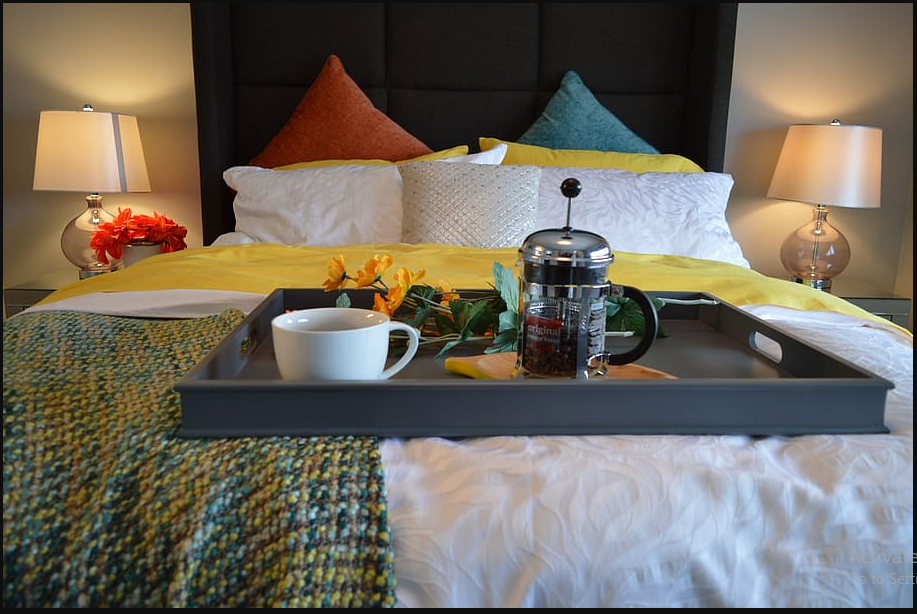
Having Coffee Before Bed Is It a Bad Idea?
Share
The truth is, whenever we desire, we can drink whatever we want. Yet, there's a particular smirch that comes with tossing back, say, a pair of lunchtime bottles of wine or a late-night espresso. "You’ll stay up all night!" is a growing nag. But that doesn't seem to be a problem elsewhere in the world. For example, the late-night coffee culture is everywhere in countries such as Italy, Spain and France. But how are they handling caffeine — the psychoactive drug which is consumed widely — late at night better than anyone else? Can we even after dinner, take a mildly roasted cup of coffee and sleep through the night?

Here we seek out to better understand the culture of coffee-drinking in after hours — and to figure out why some people can throw French press coffe back before they go to sleep.
Espresso Isn’t That Tense
Many people believe that espresso is a super powerful type — a specific coffee, if you like — but that isn't real. "A roast with espresso is always just advertisement," says Giorgio Milos, the master barista of illy. Additionally, Milos says that if grounded to the correct standard, most of all coffee beans can be converted to espresso.

"Few roasts, blends and single roots taste better for non-espresso preparations and have a great taste for cooking espresso," he says. "At the end of the day, taste is arbitrary and personal choice comes down to it. For some individuals, balance and aroma complexity are the key to a great espresso that can be obtained from a medium-roast blend.
Espresso or French Coffee: Which has more caffeine

Small is a cup of espresso but it packs a big punch. "Although espresso contains less caffeine than filter or other coffee types, the dosage is much greater, and the body absorbs less caffeine but in a much shorter time than filter coffee — which is normally snacked for minutes," says Milos. "And the effect of espresso on our senses is greater."
Difference of Caffeine between Light roast & Dark roast?
Contrary to popular belief, multiple coffee roasts — light, medium, or dark — have no effect on the levels of caffeine. "During roasting, caffeine isn't burnt off," says chef Matthew Robinson, food scientist and member of The Culinary Exchange. "In terms of taste, all you want is in it. If you like that sort of thing, a light roast can be flavorful, as can a very dark roast. "In theory, drinking a lighter roast instead of a darker roast before bed will not do you any justice.
Health Benefits of Coffee
Coffee has multiple recorded health benefits.
Studies have shown that drinking a moderate amount of coffee on a regular basis has a positive effect on the cardiovascular system, digestion and can even help prevent certain forms of dementia, such as Alzheimer's disease.
Yet, another research indicates that consuming caffeine late in the day can in fact induce sleep disturbances that have a detrimental impact on your health.
Can pre-bed coffee keep you awake?
Sorry, it just isn't there. "A number of variables will play into this, including baseline coffee intake, brewing process, coffee cup size, bean preference, etc." says Robinson. In other words, at 10 p.m., drinking a big latte may not be a good bedtime cocktail with three shots of espresso. A research that was conducted in 2013 depicted that caffeine ingested as many as six hours before bed substantially decreased the consistency and sleeping hours. However, there is no reason to be worried over an espresso after dinner. Remember, it comes from beans of coffee so it's not as intense as you might think. "Espresso, that beautiful intensity shot, will be having the same effect as other coffees," says Robinson.
Caffeine levels Do Vary
Caffeine levels can differ greatly from cup to cup, based on the brewing process and form of bean. "If it's low, it cannot give you a lot of buzz 20 minutes before bed, but if it's solid, it's going to knock the buzzy feeling harder," Robinson says. "Bean style may be a consideration as well-certain beans have more caffeine."
Is there any relation between Caffeine and Insomnia?
As it turns out, if you can't sleep at night, ingesting caffeine during the day is pretty bad indeed. Your body is composed of cells, each having its own circadian rhythm. The gears are humming along, and they start to shift as the sun goes down to prepare the body for rest.

Unknown to your cells, there's a date at 7 pm at the local coffee shop. You 're ordering a large French press coffee because you're brave and adventurous so want to enjoy your cozy drink for longer than a pair of pure espresso shots.
But it's 11 pm now and you're back from your date and ready to go to bed. Your cells are wide awake, so once you get to sleep it's not going to be the deep, restorative kind that leaves you rested and ready for the following day.
Thus, the cycle of drinking caffeine begins all day to stay awake because you drank caffeine too late the previous day.
Is it coffee that leaves you sleepy? Not really, it only disrupts the natural sleep pattern in your body
